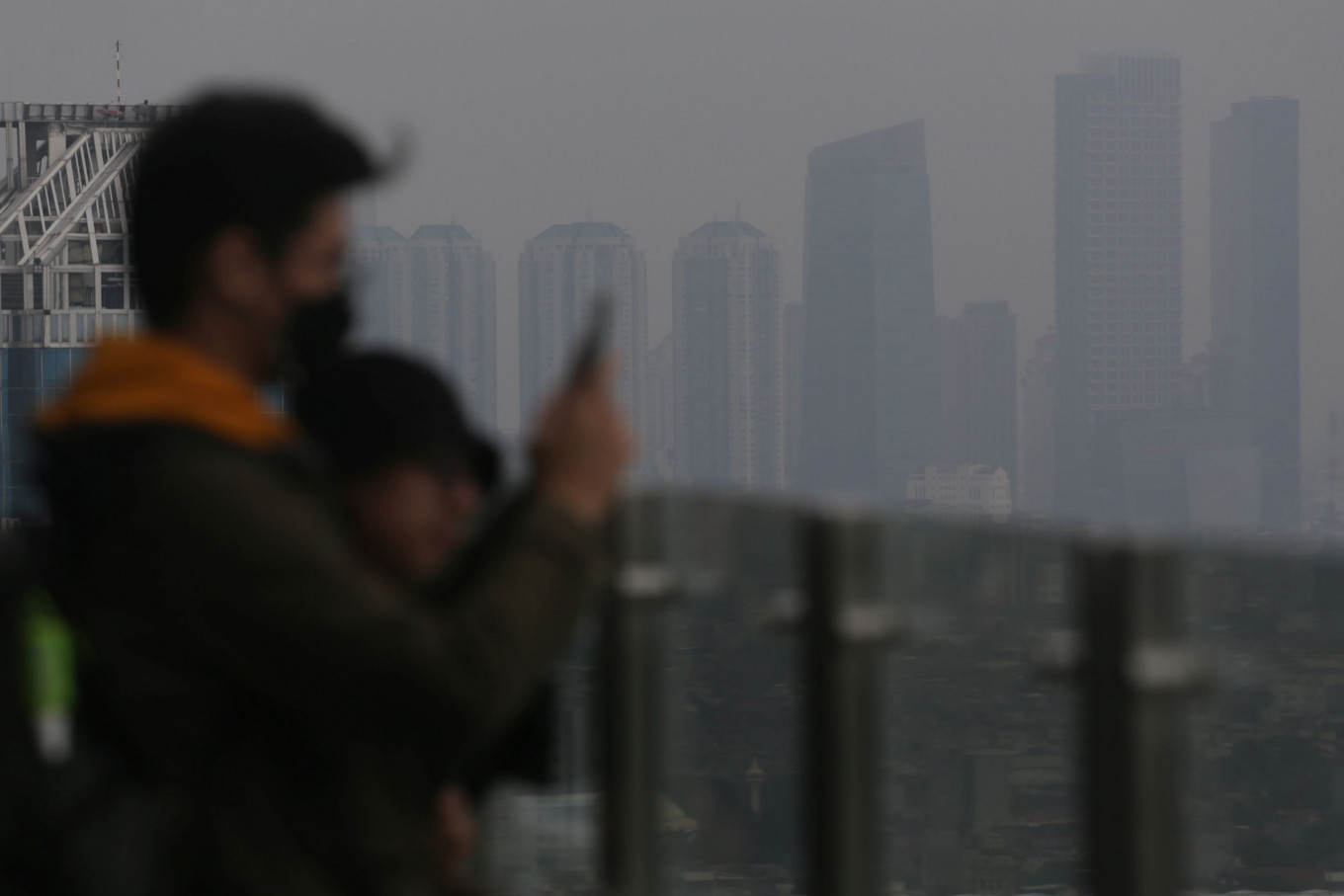Popular Reads
Top Results
Can't find what you're looking for?
View all search resultsPopular Reads
Top Results
Can't find what you're looking for?
View all search resultsFalse pollution solutions
Air pollution is responsible for an estimated 2,500 premature deaths a year in Greater Jakarta, while also causing other health problems such as immune, respiratory and cardiovascular disease.
Change text size
Gift Premium Articles
to Anyone
We have watched air pollution suffocate our city for months with no sign of abating.
Since May, Jakarta has consistently ranked among the top 10 most polluted cities in the world, according to data compiled by Swiss air quality technology company IQAir, and in recent weeks, it has also topped the list for the most consecutive days with an “unhealthy” air quality index reading.
Dry season is often blamed for the increased air pollution in the capital this time of year. It is certainly a contributor, providing less rain to wash pollutants out of the sky, and this year’s El Niño is thought to be bringing even drier atmospheric conditions.
But we must not ignore the root cause of the problem: vehicles and coal-fired power plants pumping out hazardous substances. Government officials continue to offer false or woefully insufficient solutions to the problem that is asphyxiating our city.
As Jakarta’s air pollution made its periodic return to the headlines this year, Transportation Minister Budi Karya Sumadi called on residents to shift from combustion-engine vehicles to electric vehicles (EVs). He said gasoline- and diesel-burning vehicles were the biggest source of pollution and claimed that mass conversion to EVs could solve the problem once and for all.
But switching to EVs is only a real solution if the power plants that charge them are sufficiently clean. The United States’ Environmental Protection Agency has noted that while EVs have no tailpipe emissions, generating the electricity to charge them can release carbon and other forms of pollution.
In Indonesia’s case, most of our electricity comes from coal, which emits pollutants such as nitrogen oxides and PM2.5, prolonged exposure to which can damage the respiratory system. There are at least 16 coal-fired power plants encircling the city, generating electricity while pumping hazardous fumes and particles that Jakartans must inhale on a daily basis.
These power plants are the big culprit in the unceasing pollution over Jakarta. A 2020 report from the Center for Research and Energy and Clean Air (CREA) found that emissions from power plants and industrial complexes in neighboring Banten and West Java were the major contributors to the capital’s air pollution.
The report highlighted the impact of the Suralaya coal-fired power plant in Banten. Despite public activity and traffic restrictions related to COVID-19, the plant was operating as usual during the period of study. Its emissions were carried by the wind to Jakarta and contributed to the city’s high levels of PM2.5 pollutants.
The pollution typically intensifies at night, when electricity consumption peaks, as shown by a pilot in a recent viral video.
The CREA estimated that air pollution was responsible for an estimated 2,500 premature deaths a year in Greater Jakarta, while also causing other health problems such as immune, respiratory and cardiovascular disease. The transboundary pollution from coal power plants in Greater Jakarta costs the city and its surrounding areas an estimated Rp 5.1 trillion (US$333 million) every year.
But the government is still putting the onus on everyday people to make sacrifices to stem the pollution. An official from the Environment and Forestry Ministry specifically asked whether people were willing to shift to more expensive higher-octane gasoline or EVs to help mitigate pollution.
What the official did not acknowledge was that residents of Greater Jakarta are already sacrificing every day to survive in the city. Not only must we breathe polluted air, many of us must also brave commutes five days a week, even though we know much of our work can be done remotely, which would cut down on pollution significantly.
Our city deserves better. It is time for the government to stop offering false solutions and look honestly and unflinchingly at the root of the problem, before more people die of this malign cloud that hangs over us.











